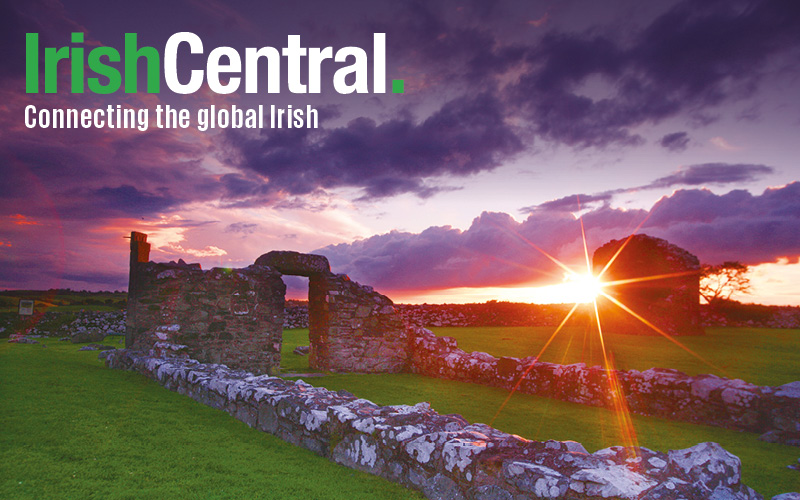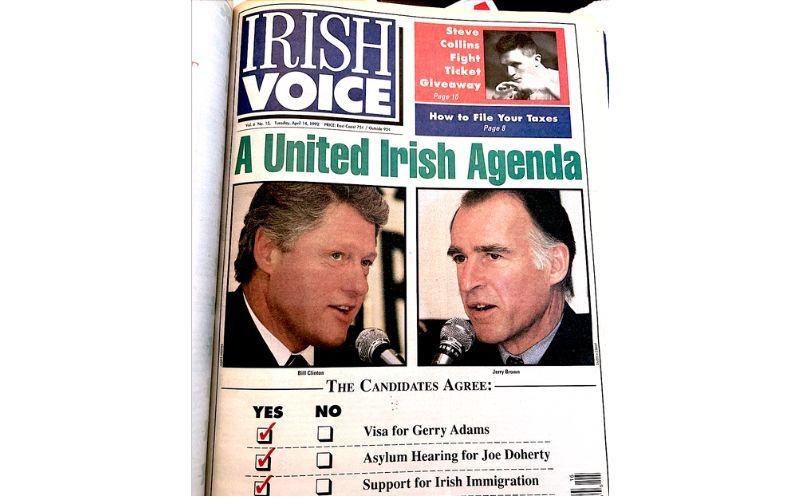It could be said that the presidential hopeful's comments involved not only Irish Travellers but a significant number of others. This is a problem that won't be solved by political correctness.
As expected, Michael D. Higgins is back for a second term as president of Ireland, having topped the poll last Friday with 56 percent of the national vote.
But the real winner in the election was the Derry-born Irish American Peter Casey, who came second on over 23 percent of the vote despite being the no-hope candidate with just one percent support in the opinion polls when the campaign began a few weeks ago.
It was a phenomenal result for Casey -- way ahead of the other runner-up candidates -- and one that has deeply upset the establishment here. They are now tying themselves into knots trying to explain away why almost a quarter of the voters backed Casey despite his allegedly "racist" comments on travelers and his criticism of Ireland as a welfare state.
The accusations of racism flew during the last week of the campaign following Casey's remarks about travelers simply being people who camped on someone else's land and whose presence in an area drove down property values. They intensified when he insisted that travelers were as Irish as anyone else and that acknowledging them as a separate ethnic group was "nonsense."
This is the kind of thing you simply cannot say in modern, politically correct Ireland, and the shock it caused across the establishment was palpable. Yet the reality behind the hysteria was that Casey was giving voice to the silently held beliefs of many people here.
Read more: Peter Casey would “prefer his ingrown toenail removed without anesthesia” than meet Gerry Adams
The starting point of the controversy came when he highlighted the absurd case of a group of travelers in Tipperary who were refusing to move into six large houses built for them by the local council at a cost of €1.7 million because they wanted grazing land behind the houses for their horses. At a time when there is a housing crisis in the country and so many are homeless, Casey said, this was "simply wrong." Cue outrage across the establishment, accompanied by a rather desperate attempt to excuse the standoff in Tipperary by the need to provide "culturally appropriate" facilities. There were angry reminders that travelers have been discriminated against for decades, have a high suicide rate, 80 percent unemployment, a shorter average lifespan, etc, etc.
There was no acknowledgment that the lifestyle of travelers might be a factor in the deprivation many of them suffer. Instead, there were accusations that Casey's statements were populist politics at its worst, that he was like President Trump, and that his views were racist and unacceptable in an inclusive, tolerant country like Ireland. But many people were unconvinced by the outrage. They did not see him as a racist but as someone who was telling the unvarnished truth.
They were absolutely delighted that at last someone was brave enough to break out of the straight jacket of political correctness and, in their view, tell it like it is. Which is why so many of them decided to vote for him. Viewed objectively, it is hard to characterize any of Casey's individual comments about travelers as racist. That said, he was less careful than he should have been about distinguishing between some travelers and all travelers, for example in his blunt comment that travelers don't pay their fair share of tax.
Instead of being regarded as racist, however, his comments were seen by the people who voted for him as simply stating the reality. On the tax question, for example, the reality is that very few travelers are in PAYE employment, and since around 80 percent are unemployed (on welfare) they don't pay tax. Those who are working are usually in the black economy, doing jobs for cash, and so remain outside the tax net.
On a more general level, the uncomfortable reality we have to face up to is that the traveler lifestyle or culture is frequently at odds with the way the rest of the population lives and behaves. A good deal of traveler behavior is anti-social, and it goes much further than leaving mounds of garbage in their wake when they move from one place to another, or around the permanent halting sites where most now live. The more serious aspect is the disengagement of travelers from the rest of society which appears to lead to a significant number among them regarding the settled community as fair game for various kinds of crime. This is reflected in the fact that although travelers make up only 0.6 percent of the population, they account for 10 percent of the prison population. Of course, travelers have good and bad among them, like the rest of society, but the statistics speak for themselves.
The suggestion that the separate lifestyle of travelers means that a significant number of them have little empathy with the rest of society is seen as controversial. Yet it is not really that surprising when they live on sites away from the settled community and have little connection with its rules and regulations. Since they feel they are different, why should they conform to what the rest of society deems to be acceptable behavior?
This disconnection with the settled community -- and particularly the lack of empathy -- can be seen as an explanation of why some of the violent robberies by roaming traveler gangs on isolated old folk in rural areas have been carried out with such appalling brutality. When there is no empathy, such cruelty is easier.
Particularly in rural areas, the fear of traveler gangs is intense, as is frustration at the apparent inability of gardai to curb their activities. Nor is it just violent burglaries of the homes of old folk that are a problem.
These gangs move across the country in high-speed 4x4s, and theft by them of tools, equipment, and other items from farms and businesses has become a plague in the countryside. If they are caught casing land or buildings they claim to be walking dogs, hunting, looking for work, etc., and even when such incidents are reported, preventing subsequent theft is difficult. In towns and cities, there are problems caused by traveler scams involving laying tarmac, fixing roofs, selling furniture or carpets, doing odd jobs and so on. Again, a common factor seems to be a willingness to take advantage of the settled community, particularly vulnerable people, and the more trusting they are the better.
A recent survey by gardai of crime in areas around the south and west sides of Dublin revealed the number of young travelers, many of them teenagers and brothers from individual families, involved in burglaries in these areas. For them, this is normality, an accepted way of life. What's the point of school when this path to money and status is possible? Another worrying aspect is the sense of entitlement and empowerment that appears to accompany the lifestyle. Any attempt to frustrate thefts or scams or even anti-social behavior can quickly lead to aggressive confrontations. This is why many Casey voters are afraid of travelers and why gardai only enter some traveler sites in force rather than with a single squad car.
The angry reaction to Casey in the last two weeks has insisted that it is unfair or even racist to single out travelers for special comment or attention in relation to crime or other problems because every section of our society has bad actors. But that merely shuts down debate rather than examines an area where there is clearly a problem, even if that is confined to a minority. Similarly, the reaction to Casey has resisted any questioning of the traveler lifestyle or culture. Such questioning is seen as racist.
So there is no discussion of alcohol and drug problems among travelers, teenage marriages, kids being taken out of school early, miserable living conditions on sites, domestic violence, inter-marriage etc. There is no discussion about whether the lifestyle or culture is adding to the difficulties faced by the travelers themselves. Talking about the traveler lifestyle, you will remember Margaret Cash, the 28-year-old traveler mother who became famous in Ireland -- and abroad -- a few months ago when she posted pictures online of herself and six of her seven kids sleeping in a Dublin police station because they were homeless. She has since been given accommodation, but she was back in court three weeks ago for shoplifting.
During the case, it was mentioned that she had been taken out of school at 12 and married at 15, not unusual in the traveler community. Yet those who attacked Peter Casey last week have nothing to say about this aspect of traveler culture which in the rest of Irish society would be seen as child abuse.
In view of all this, it is possible to see Casey's comments about travelers as restrained rather than outrageous. It is wrong to generalize about any section of society, but the truth is that there is a real problem -- involving not all travelers but a significant number -- and it's one that won't be solved by political correctness that shuts down an honest debate. One final point. A telling moment in the campaign came during one of the TV debates when all six candidates were asked if they would be happy to live next door to a traveler site. Each of them, in turn, said yes, apart from Peter Casey who said no. Such hilarious hypocrisy was the reason so many people ended up voting for him.
Read more: Likely violence in London, Dublin if British push through Brexit hard-border




Comments